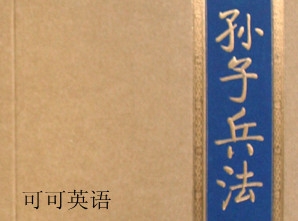軍爭篇 NO.4:
《軍政》曰:言不相聞,故為之金鼓;視不相見,故為之旌旗。
夫金鼓旌旗者,所以一人之耳目也。
人既專一,則勇者不得獨進,怯者不得獨退,此用眾之法也。
故夜戰多火鼓,晝戰多旌旗,所以變人之耳目也。
這句啥意思:
《軍政》說:“在戰場上用語言來指揮,聽不清或聽不見,所以設置了金鼓;用動作來指揮,看不清或看不見,所以用旌旗。
金鼓、旌旗,是用來統一士兵的視聽,統一作戰行動的。
既然士兵都服從統一指揮,那么勇敢的將士不會單獨前進,膽怯的也不會獨自退卻。這就是指揮大軍作戰的方法。
所以,夜間作戰,要多處點火,頻頻擊鼓;白天打仗要多處設置旌旗。這些是用來擾亂敵方的視聽的。
英文這么說:
The Book of Army Management says: On the field of battle, the spoken word does not carry far enough:hence the institution of gongs and drums. Nor can ordinary objects be seen clearly enough: hence the institution of banners and flags.
Gongs and drums, banners and flags, are means whereby the ears and eyes of the host may be focused on one particular point.
The host thus forming a single united body,is it impossible either for the brave to advance alone,or for the cowardly to retreat alone. This is the art of handling large masses of men.
In night-fighting, then, make much use of signal-fires and drums, and in fighting by day, of flags and banners,as a means of influencing the ears and eyes of your army.

中國古船上的旌旗











